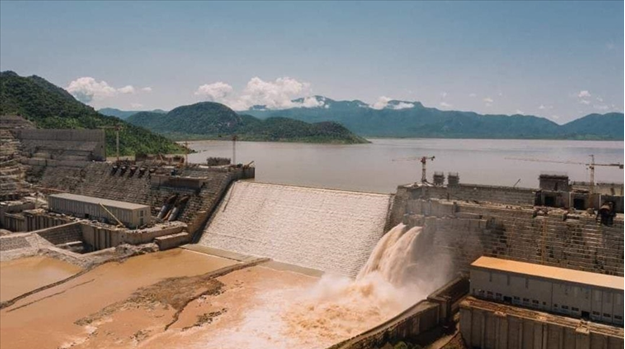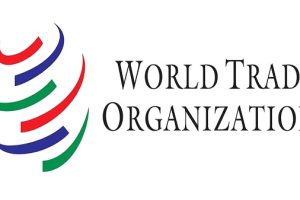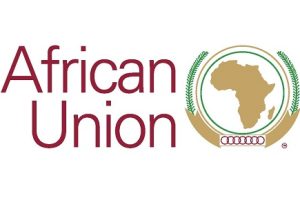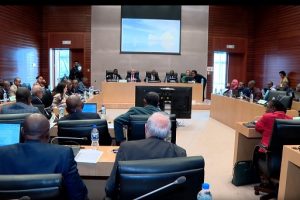
Prime Minister Abiy Ahmed recently announced to lawmakers that Ethiopia is on track to finalize the Grand Ethiopian Renaissance Dam (GERD), known locally as the Abbay Dam, within the next six months. This declaration marks a significant milestone in the project, which has been fraught with regional complexities and negotiations.
The construction of the GERD has been a subject of intense scrutiny and disagreement, particularly from downstream nations Egypt and Sudan, who express concerns about potential impacts on their water security. To address these concerns, Ethiopia has consistently maintained that the dam is intended for power generation and will not significantly harm downstream water flow. The government has engaged in numerous dialogues and technical discussions to demonstrate the dam’s benefits and mitigate potential risks.
In this regard a key development in the region’s water governance is the Cooperative Framework Agreement (CFA), which came into force last year. Ethiopia has been a strong proponent of the CFA, advocating for equitable and reasonable utilization of the Nile River’s resources. The Ethiopian government has repeatedly called upon Egypt and Sudan to join the agreement, emphasizing the importance of cooperative management for the sustainable development of the entire Nile Basin.
During the fourth Ethiopia-Uganda Joint Ministerial Commission (JMC) meeting, Uganda, the current chair of the Nile Basin Initiative (NBI), is actively urging all Nile Basin countries to adopt the CFA, aiming to move away from outdated colonial-era water agreements. Uganda’s Minister of Foreign Affairs, Odongo Jeje Abubakhar, emphasized that the 11 Nile-sharing nations have long been bound by a 1929 colonial agreement established by Britain and Egypt, a time when most basin nations lacked independence.
“It’s time to move beyond these unequal frameworks and adopt the CFA for cooperative and fair management,” Minister Abubakhar declared. He confirmed that six of the ten eligible countries have now signed the CFA, meeting the threshold for implementation. “We strongly encourage remaining nations to join this collective effort for shared prosperity,” he added.
Ethiopia’s Foreign Minister Gedion Timothewos (PhD) on his part reiterated Ethiopia’s firm commitment to the full implementation of the CFA. He called on Uganda to leverage its NBI leadership to facilitate the establishment of a Nile Basin Commission, a vital body for equitable water governance.
“Uganda, as the current chair of the Nile Council of Ministers, has a historic opportunity to champion this vital initiative despite potential external pressures,” Minister Gedion stated. He stressed the importance of finalizing the Nile River Basin Commission to enhance cooperation among member states.
The next NBI meeting, scheduled for June 2025, will address Nile management, with expectations of more countries joining the CFA. The completion of the GERD and the broader push for CFA adoption signify a potential shift in the Nile River’s management, with a focus on regional cooperation and sustainable development. The coming months will be crucial in determining whether the remaining disagreements can be resolved and a new era of collaborative water governance can be established.
The implementation of the CFA would enhance the relations among basin countries on existing and future projects. It is known that the Abbay Dam is seen by the country as a source of national pride and may an example for working without harming the downstream countries.
In his interview with EPA Zahid Zeidan Al-Hariri, Founder and Deputy CEO of Abay Media, emphasized the Abbay Dam as a symbol of national pride and a testament to the perseverance of the Ethiopian people. “The Renaissance Dam is the fulfillment of the dreams of past generations; it is the pride of a generation,” he stated.
Zahid highlighted that the GERD transcends mere water management, representing a fundamental “life agenda” for Ethiopia. He recalled how Ethiopians have long expressed their aspirations for utilizing the Nile through songs, dances, and other artistic expressions, underscoring the dam’s cultural and historical significance. “The fact that the dam is now being implemented and has reached the final stage demonstrates the unwavering perseverance of our people,” he noted.
He stressed that the desire to harness the Nile’s potential predates the current era, with previous generations harboring similar aspirations. “This construction is not only a matter of water but also a matter of survival, which goes beyond any political position and perspective,”Zahid asserted, urging all political parties to maintain their unified stance on the GERD.
Zahid emphasized the dam’s collective ownership, stating, “The dam is not only the property of an individual or group, but also the common property of all Ethiopians.” He urged against allowing differing views to diminish the sense of national belonging to the project.
He further underscored the GERD’s transformative potential, noting its benefits for various segments of society, including mothers who endure long journeys for firewood. Zahid acknowledged the accelerated progress of the dam’s construction since the transitional government and highlighted the significant diplomatic efforts that have contributed to its current stage.
He called for increased public awareness about the GERD’s importance, urging both the government and the community to actively support the project. “Egyptians should understand the dam better than Ethiopians,” he remarked, emphasizing the need for comprehensive public education. He also advocated for continued government initiatives to engage and encourage community involvement.
Zahid’s speech reinforces the narrative of the GERD as a symbol of national unity and a catalyst for development, aligning with the broader regional discourse on equitable Nile River management and the Cooperative Framework Agreement (CFA).
Moreover, on his recent interview with ENA, Foreign Affairs Spokesperson Ambassador Nebiat Getachew says Abbay dam is poised to become a critical catalyst for regional economic integration by offering substantial benefits to East and Southern Africa.
He recalled the unprecedented diplomatic pressures against Ethiopia, noting that those mounting diplomatic challenges were unreasonable.
Abbay dam is not intended to harm any nation, but rather to serve as a beacon of regional prosperity, he said. The dam also has a Pan-African dimension, he stated, adding that the Africa Agenda 2063 is based on integrating Africans for joint prosperity and development.
Overall, the completion of the GERD and the broader push for CFA adoption signify a potential shift in the Nile River’s management, with a focus on regional cooperation and sustainable development. The coming months will be crucial in determining whether the remaining disagreements can be resolved and a new era of collaborative water governance can be established.
BY EYUEL KIFLU
THE ETHIOPIAN HERALD WEDNESDAY 9 APRIL 2025





